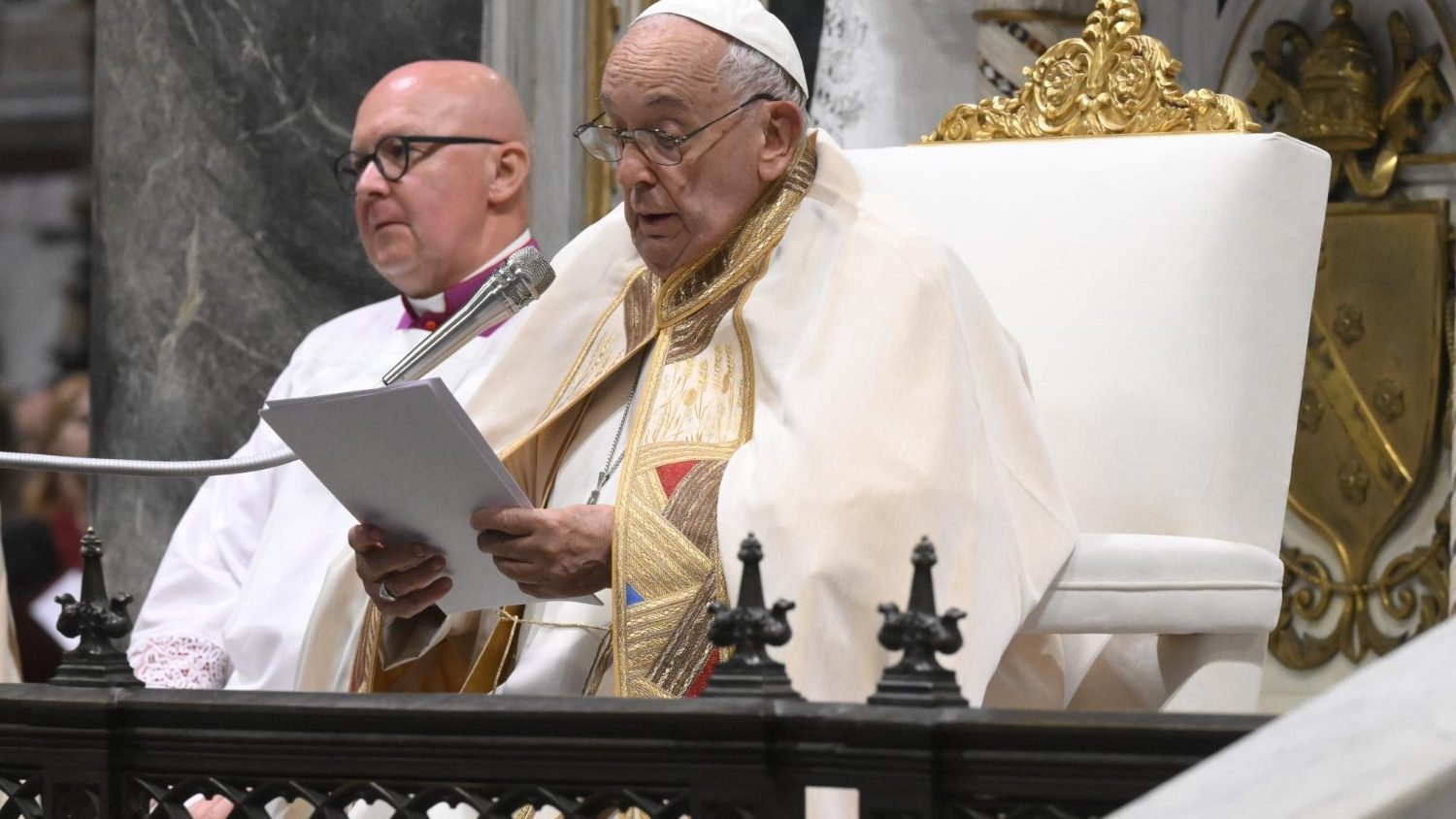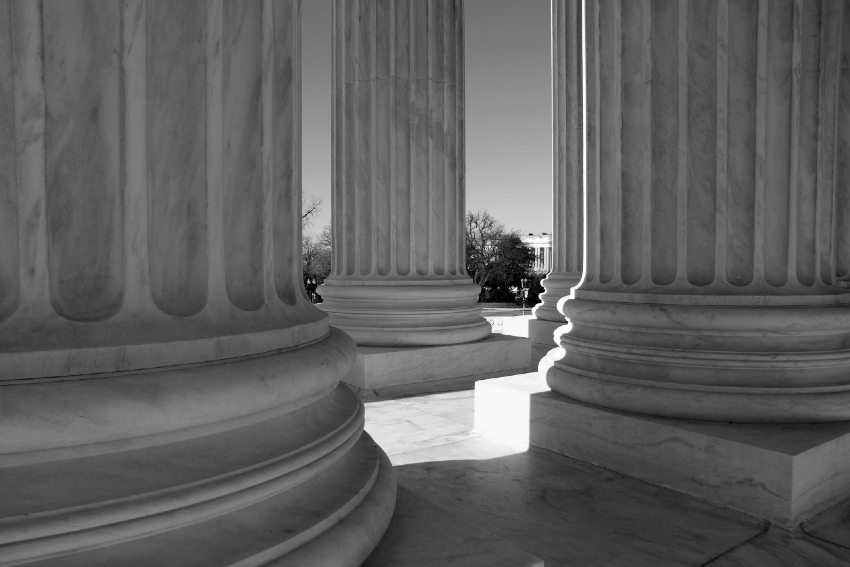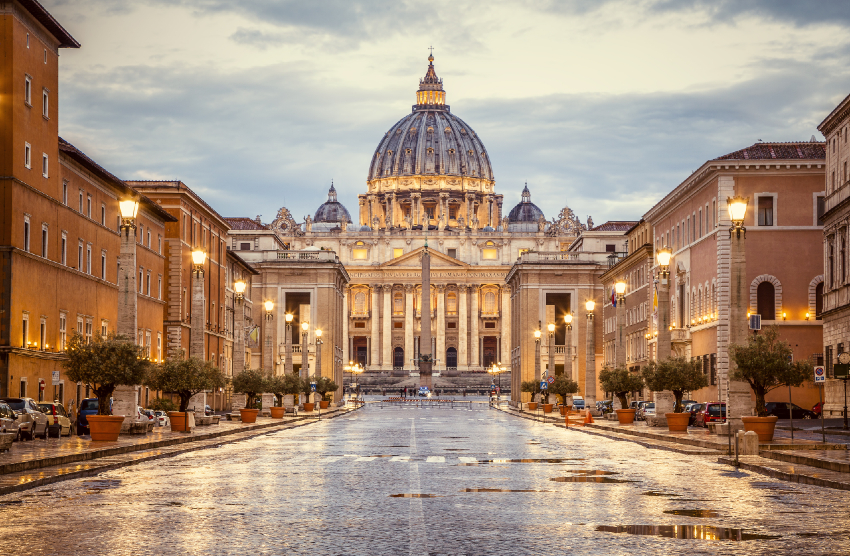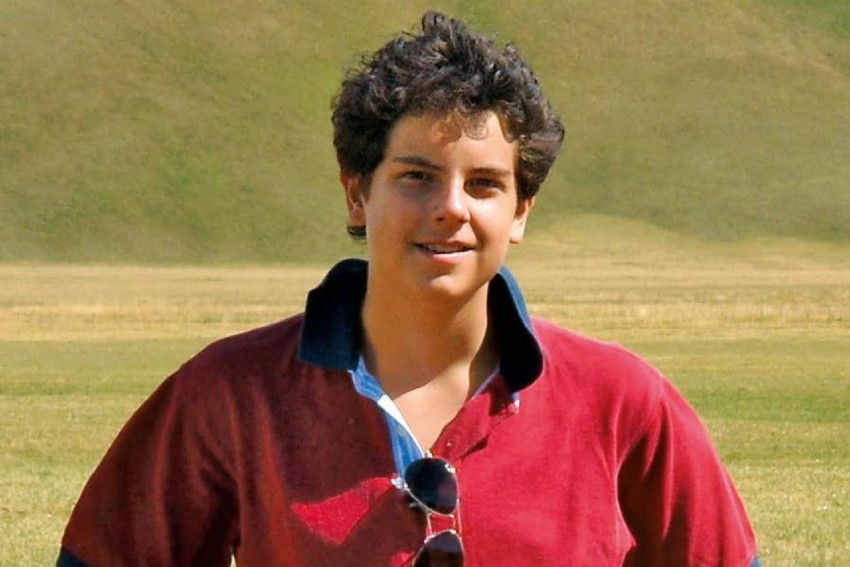
Pope Francis celebrated the Feast of Corpus Christi yesterday in Rome. The celebration began with a Mass in the Basilica of St. John Lateran (on the opposite of the city from the Vatican and St. Peter’s) followed by a Eucharistic procession down via Merulana to St. Mary Major.
Corpus Christi (Latin for “The body of Christ”) falls between late May and the middle of June, on the first Thursday after Trinity Sunday (60 days after Easter). In some countries the festival is celebrated on the Sunday following Trinity Sunday.
The Feast celebrates the great mystery of Christ’s nature and presence, and of our “incorporation” into that mystery, that sacrament, for the Greek word “mysterion” is in Latin the word “sacramentum” — that which makes holy. The Catechism of the Catholic Church (Paragraphs #774- 776) explains the meaning of the word Sacrament: “The Greek word mysterion was translated into Latin by two terms: mysterium and sacramentum. In later usage, the term sacramentum emphasizes the visible sign of the hidden reality of salvation which was indicated by the term mysterium. In this sense, Christ Himself is the mystery of salvation: ‘For there is no other mystery of God, except Christ.’” (link)
The body of Christ (“corpus Christi“) is the Eucharist, but mystically it is also the Church Herself.
Our participation in the Church, through all of the sacraments, especially Communion, makes each of us participate in the mystical body of… Christ Himself… (Photo Credit: Vatican Media)
“There are some who say that true freedom means thinking only about ourselves, enjoying life doing whatever we want without regard for others. This is not freedom but a hidden slavery.” —Pope Francis, in his homily yesterday for the Feast of Corpus Christi in the Basilica of St. John Lateran
Letter #16, 2024, Monday, June 3: Corpus Christi
Pope at Corpus Christi Mass: ‘War-torn world needs aroma of bread of love’
Pope Francis presides at Mass on the Solemnity of Corpus Christi, and reflects on the importance of the Eucharist in bringing peace to our hearts and our war-torn world.
By Devin Watkins
***
[Special Note: Our world is, as Pope Francis said in his homily yesterday, “war-torn,” and all of us pray for a just peace wherever there is the bitter reality of war. In this context, I have just watched the new interview (link) of Jeffrey Sachs by Tucker Carlson — which lasts nearly two and half hours, and deals with the Russia-Ukraine war, and the Covid virus and vaccinations (link), and several other topics, including the assassination of President John F. Kennedy in 1963 (link and link). I was in college with Sachs 50 years ago, in the 1970s, and then, after 50 years, we met again, and I have now spoken with him several times (because he comes often to the Vatican to participate in conferences at the Pontifical Academy of Sciences) in the past two years, including two podcasts with him (link and link). I do differ quite strongly with Jeffrey on some points concerning “sustainable development” and abortion, but I found this interview useful in setting forth, in considerable detail, his understanding, based on first-hand experience, of what led to this bloody, tragic war in Ukraine. Since there seem now to be dangers that this war will “go nuclear” and bring even greater misery than it already has, I would encourage readers to take at least a few minutes to view this interview between Sachs and Carlson. And, of course, I would be happy to receive letters of either criticism or appreciation, should you feel moved to write… —RM]
***
“God does not abandon us but always seeks, waits for, and accompanies us, even to the point of placing Himself, helpless, into our hands.”
Pope Francis offered that certainty in his homily at Mass in the Basilica of St. John Lateran, as the Church celebrates the Solemnity of the Most Holy Body and Blood of Christ, known as Corpus Christi Sunday.
The Mass concluded with a Eucharistic procession to the Basilica of St. Mary Major.
Eucharistic attitude teaches appreciation
In his homily at Mass, the Holy Father focused on the Eucharistic bread and spoke about the three themes of “thanksgiving, remembrance, and presence.”
Bread, he noted, is a food of daily life, through which brought Himself intimately close to us.
The Eucharist, added Pope Francis, teaches us to be thankful for God’s many gifts in our lives, by properly using our talents and skills.
“This is our mission to give thanks” asked the Pope. “While we could add even many more ways to give thanks, these are important ‘Eucharistic’ attitudes since they teach us to appreciate the value of what we do and offer.”
True freedom in service
Pope Francis turned to the importance of remembering Christ’s passion, death, and resurrection.
In giving us His Body and Blood, Jesus taught us to give ourselves as an offering to people in need and those around us.
“There are some who say that true freedom means thinking only about ourselves, enjoying life doing whatever we want without regard for others,” said the Pope. “This is not freedom but a hidden slavery.”
True freedom, he said, is found when we bend down to serve others, “motivated solely by love.”
Streets filled with bread of love
Reflecting on the real presence of Christ in the Eucharist, the Pope pointed out that God never abandons us but rather waits for us to accept Him in the form of Bread.
“His real presence also invites us to be close to our brothers and sisters wherever love calls us,” said Pope Francis.
Our world, he added, desperately needs the Bread of the Eucharist, so that streets filled with rubble and the destruction of war may return to peaceful places filled with the smell of freshly baked bread.
“We urgently need to bring back to our world the good, fresh aroma of the bread of love, to continue tirelessly to hope and rebuild what hatred destroys,” he said.
Inviting others to follow Christ
In conclusion, Pope Francis said the Eucharistic Procession from St. John Lateran to St. Mary Major is not a flashy expression of faith.
“We are not doing this to show off,” he concluded, “or to flaunt our faith, but to invite everyone to participate, in the Bread of the Eucharist, in the new life that Jesus has given us.”
[End, article on corpus Christi procession yesterday in Rome]
***
Things you might be interested in:
Note: If you would like to support this letter, you may donate here.
If you would like to subscribe to Inside the Vatican, click here.
If you are interested in traveling with us on pilgrimage, click here.
If you are interested in joining our Locals community, click here and then here.






Facebook Comments